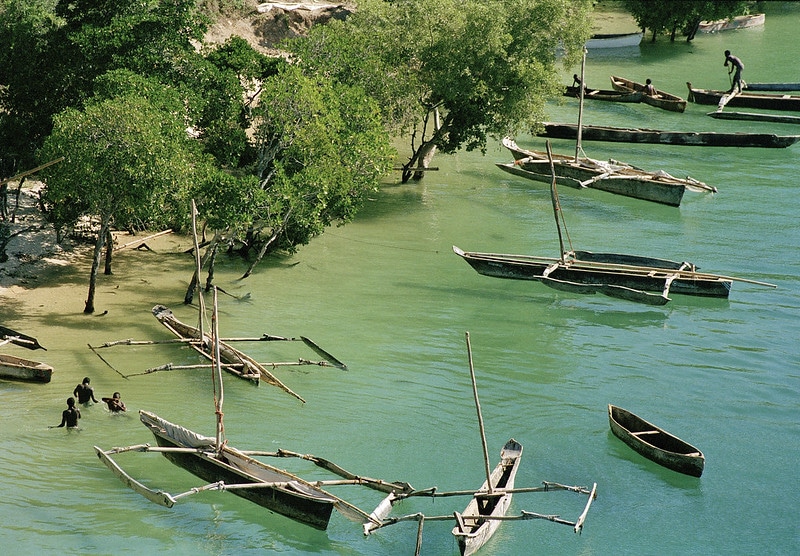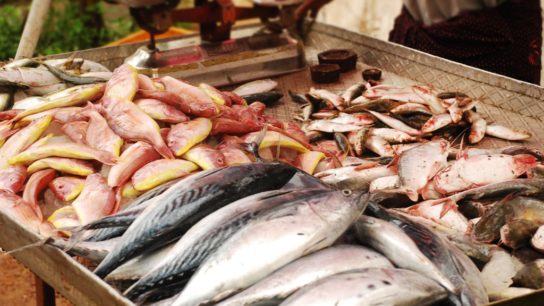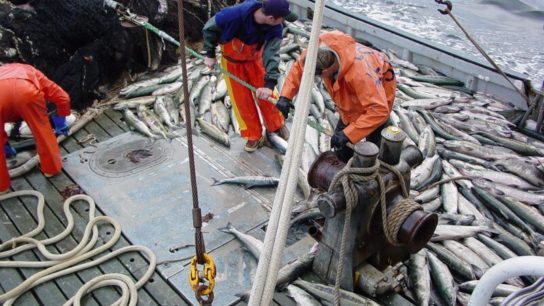Kenya is emerging as a leader in the fight against plastic pollution and is among the first countries in East Africa to limit the use of single-use plastics and sign the Clean Seas Initiative to clear waterways of plastic waste. How can the rest of the world learn from Kenya?
—
Last year, Kenya banned plastic bottles, cups and cutlery in its national parks, which followed after a country-wide ban on plastic bags in 2017. At the virtual convening of the fifth session of the UN Environment Assembly, Juliette Biao, the United Nations Environment Programme (UNEP) Regional Director for Africa, says, “Kenya has invested heavily in both policies and law enforcement to win the fight against plastic pollution. The result of this investment is today boosting Kenya’s environmental stewardship in Africa and the world.”
Kenya has long struggled with plastic waste; in Mombasa, the country’s second-largest city, 3.7kgs of plastic per capita leach into water bodies annually.
You might also like: ‘Net-Zero’ Vs ‘Carbon Neutral’: How Capitalism Struggles With the Language of Climate Change
How Did Kenya Tackle the Problem?
Kenya is developing a plastic waste management programme- one that could be scaled and replicated throughout Africa and beyond. The national government is working alongside communities and in partnership with the private sector as well as the UNEP to achieve this.
In addition to the ban on plastic and signing on to the Clean Seas Initiative, Kenya was also an early adopter of the Green University initiative. For over 10 years, universities around the country have been working on greening their campuses, while enhancing student engagement and learning. They also offer courses in environmental science, management and policy.
Kenya is hoping that its efforts to green its economy will spur economic growth and create jobs.
Chris Kiptoo, Principal Secretary, Ministry of Environment and Forestry, Kenya said at the UN Environment Assembly, “Since the commencement of our engagement with polythene bags and PET bottles, Kenya has witnessed increased investment in plastic recycling and several new players have come onboard. We have upscaled environmental awareness on plastic pollution together with our partners and are proud of initiatives such as the FlipFlopi, which has demonstrated successful recycling of plastics.”
The country could also use its agriculture and tourism to provide sources of green innovation and job creation.
Kenya could also create and develop a sustainable blue economy, using its marine resources to create jobs and spur economic growth while protecting the ocean ecosystem. In 2018, Kenyan President Uhuru Kenyatta committed to putting in place policies that use the economic potential of Kenya’s oceans and coastline, while calling for action to reduce waste and plastic pollution.
According to a 2018 policy brief published by the United Nations Development Programme, the Western Indian Ocean generates more than USD$22 billion each year in goods and services, including fisheries, maritime transport, trade, tourism and waste management. Kenya’s share of this was estimated at $4.4 billion annually.
With the right policies put in place that balance economic growth while protecting the various ecosystems, both on land and in the ocean (the latter of which stretches nearly 230 000 sq km), Kenya could boost the value of its ecosystem services, particularly its blue economy. Kenya has already shown its willingness to develop and protect its natural resources, serving as inspiration for other countries, particularly in Africa, to do the same.
Featured image by: Flickr

















